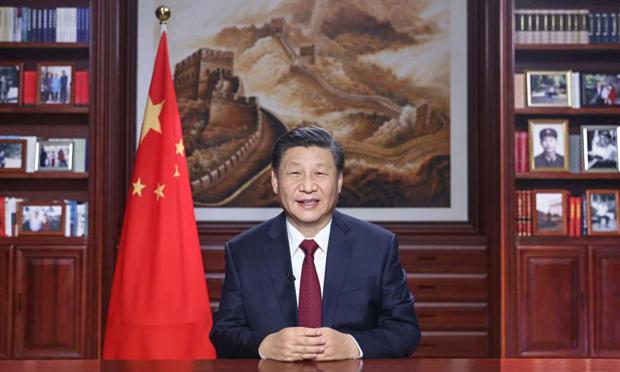Since the outbreak of COVID-19 in late 2019, China has gone on the offensive with its diplomats embracing the concept of werewolf diplomacy a rather unusual abrasive behaviour, not generally associated with diplomats. Yet, even while receiving adverse global publicity, Beijing is showing no signs of relenting.
This is also evident from its intensified crackdown against the foreign journalists operating in China. According to the recently released annual report of the Foreign Correspondents Club of China (FCCC), in 2020 authorities intensified the harassment of the foreign journalists operating in China, with an aim to block scrutiny of its actions in the aftermath of its abysmal handling of the outbreak of Coronavirus and its subsequent failure to contain the spread of the COVID-19 pandemic. According to the report, authorities launched false national security investigations to target specific foreign correspondents.
Beijing also attempted to put exit ban on these correspondents from leaving China. Besides, Beijing attempted to curtail or not renew visas of some foreign journalists. As a result, a large number of foreign journalists had to leave China. This
was the case in March 2020 when authorities rescinded credentials of U.S. journalists from The Washington Post, The New York Times and the Wall Street Journal. This made it the largest expulsion of foreign journalists since 1989 in the aftermath of Tiananmen Square massacre.
The report adds that authorities did not even spare Chinese associates of the foreign journalists in their attempt to prevent the spread of any adverse publicity and information coming out of China. Some of these associates even faced long-term detentions. As a result, for the third consecutive year, China-based foreign journalists complained about the decline in working conditions in China.
The most prominent and symbolic of the kind of harassment of foreign journalists were the cases of Australian journalists, Bill Birtles and Michael Smith. Birtles worked as Beijing correspondent for Australian Broadcasting Corporation while Smith worked as Shanghai correspondent for Australian Financial Review. In September 2020, Chinese police visited homes of Birtles and Smith asking them to submit for questioning in the national security investigation into Cheng Lei, an Australian journalist working for state broadcaster China Global Television Network. Lei had been detained by authorities a month before for passing state secrets overseas. Both Birtles and Smith then took a shelter in Australian diplomatic premises and were immediately rushed out of China, after their interviews with Ministry of State officials.
The FCCC report echoes this kind of reality that foreign press is facing in China. This has become particularly noticeable after Beijing's awry implementation of national security law in Hong Kong. For instance, Hong KongOs main newspaper, South China
Morning Post has faced repeated pressure from the Chinese Communist Party (CCP) its owner the billionaire Jack Ma being told to offload his stake in the newspaper. This has fuelled rumours that a state-owned firm may soon take over the fiercely independent newspaper.
Beijing is in no mood to listen as it has begun casting its net even wider. Most recently, it summoned UK Ambassador to China Caroline Wilson, who had published an article lamenting the state of foreign media in the country. Ambassador Wilson commented that foreign media in China is being misrepresented, which obscures their positive role. But her remarks drew ire of Chinese foreign ministry. This spat is also a reflection of I-JK-China tensions over Hong Kong. UK had offered Hong Kong residents the chance to become British citizens following ChinaOs crackdown in the former British colony.
It is clear that the foreign and western mediaes coverage of the protests in Hong Kong, outbreak of Coronavirus from Wuhan as well as its treatment of Uighurs and Tibetans has riled Beijing and therefore it is trying to shoot the messenger. China is often rated poorly in the freedom of the press. In 2019, porters Without Borders had ranked the country 177 of 180 countries for press freedom, after measuring media independence, respect for safety and freedom of journalists, and pluralism.
While it has sought to project a positive image of the country, CCP has also laid down red lines for foreign journalists operating in China. For instance, anything critical of President Xi Jinping and his family is now allowed. In 2019, Beijing had retaliated by blocking the visa renewal for a Wall Street Journal reporter, who had reported about investigations in Australia into the activities of one of XiOs cousins suspected of involvement in organised crime and money laundering. China has also used censorship to cut the free flow of information.
In October 2019, the FCCC had reported that nearly a quarter of the foreign news organisations accredited to report in the country had been blocked from domestic access.[ix] This included news sites like BBC and the New York Times.
While China is leaving no stone unturned in cracking downon foreign media and journalists critical of CCPOs policies, it has also found it difficult to prevent flow of leaded videos and pictures from its own citizens as was evident in the case of Dr. Li Wenliang, who first confirmed the Coronavirus infection and made the world aware of COVID-19.

Beijing intensifies attacks on foreign media, journalists to curb coverage

Ακολουθήστε το Πενταπόσταγμα στο Google news













